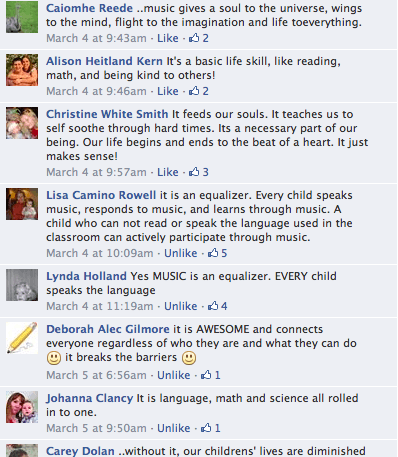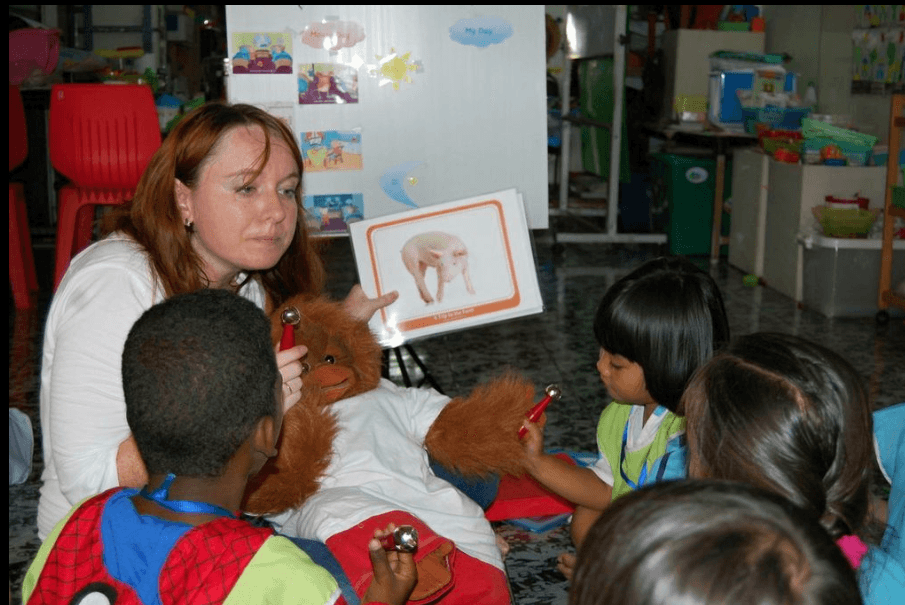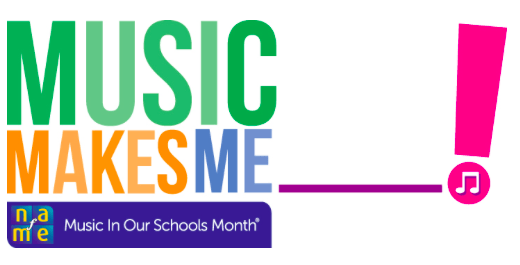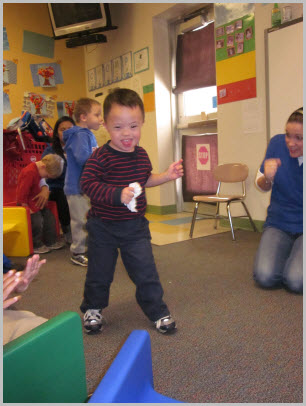Today officially marks the last day to celebrate both Music in Our Schools month and National Reading Month. However, in Kindermusik classrooms (and homes!) around the world, we celebrate the benefits of music on early literacy skills every single day. After all, children actively involved in music classes experience the benefits of music throughout the year. It’s one of the many reasons we know that music belongs in our schools.
Earlier this month, we asked the Kindermusik Facebook community why music belongs in our schools and they responded with some of the immeasurable benefits of music:

New partnership with Reading Rainbow gives us more reasons to celebrate Music in Our Schools and National Reading Month
Of course, the benefits of music on early literacy skills offer measurable reasons why music belongs in our schools, too! So, we loved celebrating both Music in Our Schools Month and National Reading Month by officially announcing and kicking off a new partnership with Reading Rainbow. Here are some of the highlights from this month:
 We announced the partnership between Reading Rainbow and Kindermusik International that will build early literacy skills in children. This partnership brings Kindermusik’s more than 35 years of experience in early childhood curriculum development with the #1 children’s reading adventure app!
We announced the partnership between Reading Rainbow and Kindermusik International that will build early literacy skills in children. This partnership brings Kindermusik’s more than 35 years of experience in early childhood curriculum development with the #1 children’s reading adventure app!- We celebrated National Read Across America Day with LeVar Burton and Reading Rainbow at a live event at Thomas Edison Elementary School in Burbank, CA featuring a live reading by LeVar Burton of a beloved Kindermusik book, The Drum Circle, and Kindermusik activities led by Educator Kelsey Springsted with Jamie Sterling. (Be sure to read how music in schools impacted Kelsey Springsted in Music: A prescription for healing.)
- The Kindermusik “Music Mountain” island goes live on the Reading Rainbow mobile app for kids. The Music Mountain island features Kindermusik’s music-themed content, including children’s books, music, and video field trips alongside other newly produced content from Reading Rainbow. Free to try, the educational app is available on the iPad and Kindle Fire.
- Kindermusik provides a guest post, “Music Makes Kids Hungry for Learning (and Reading!), on the Reading Rainbow blog.
- LeVar Burton and Reading Rainbow posted, “Reading and Music…Hitting All the Right Notes,” on the Minds on Music blog.
Did you miss these studies and presentation announcements that show even more benefits of music on early literacy skills?
 In our early literacy curriculum, ABC Music & Me, we know that the benefits of music on early literacy include the development of active listening, vocabulary, print awareness, comprehension skills, auditory discrimination, and phonological awareness. We wanted to make sure that you did not miss these new research studies and presentations that we mentioned this month.
In our early literacy curriculum, ABC Music & Me, we know that the benefits of music on early literacy include the development of active listening, vocabulary, print awareness, comprehension skills, auditory discrimination, and phonological awareness. We wanted to make sure that you did not miss these new research studies and presentations that we mentioned this month.
- New study shows that if children memorize eight nursery rhymes by the age of 4 years old, they are usually among the best readers by the time they are 8 years old. Read more.
- Talking and singing with babies promotes more that just bonding. It also supports vital brain development in young children. Read more.
- The independent 2013 research study on our early literacy curriculum and its’ positive effect on early literacy development was recently presented at the SITE (Society for Information Technology and Teacher Education) 2014 Event.
- Kindermusik will present at the Head Start’s 12th National Research Conference on Early Childhood – Collaboration and Coordination in July!



 For over 30 years,
For over 30 years, 




